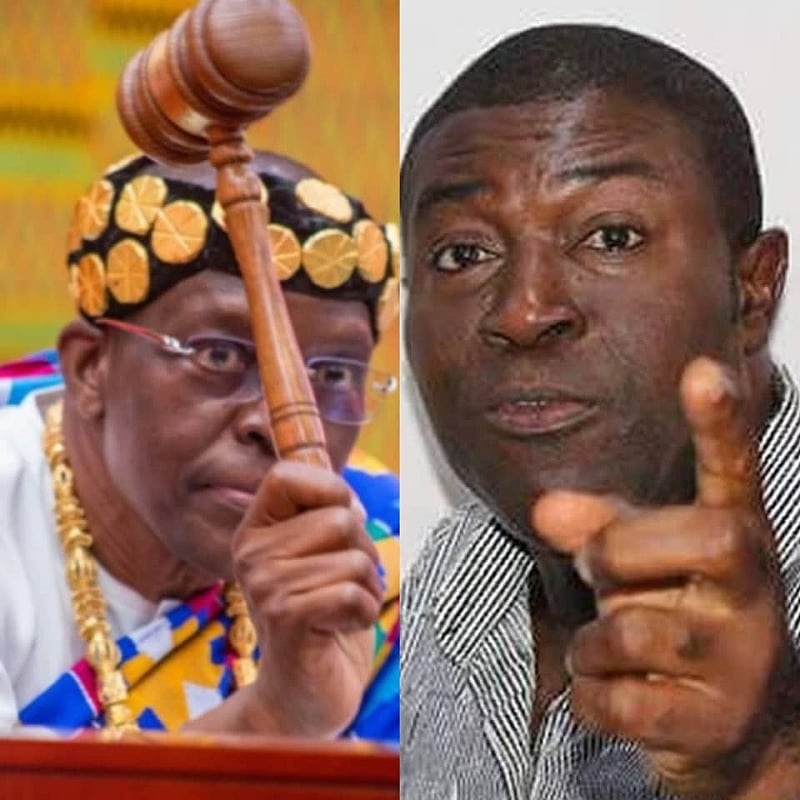Nana Akomea, the Chief Executive Officer of InterCity STC and Deputy Chair of Dr. Bawumia’s campaign team, has publicly criticized Alban Bagbin, the Speaker of Parliament, for his decision to reject a Supreme Court writ that aimed to halt Bagbin’s declaration of four parliamentary seats as vacant. This situation is rooted in a significant constitutional debate regarding the extent of parliamentary immunity and the separation of powers in Ghana. Bagbin’s rejection stems from his invocation of Article 117 of the Ghanaian Constitution, which safeguards parliamentary proceedings from judicial intervention. This article is intended to preserve the independence of the legislative branch and prevent the judiciary from interfering in parliamentary affairs.
In an official letter to the Supreme Court, Speaker Bagbin returned court documents pertaining to the writ, emphasizing that the Supreme Court’s actions were unwarranted and that he was exercising his constitutional right to maintain legislative independence. He argued that the constitutional immunity should be respected, reinforcing the idea that Parliament should operate without outside interference. This response highlights the delicate balance that must be maintained between the judiciary and the legislature in Ghana, sparking discussions on the interpretation and limitations of parliamentary privilege.
Reacting to Bagbin’s letter, Nana Akomea characterized the Speaker’s refusal to comply with the court’s writ as “unruly.” He emphasizes that, in Ghana’s legal framework, the Supreme Court holds the ultimate authority in interpreting the law. Akomea’s criticism underscores the potential implications of disregarding judicial orders, particularly regarding the health of Ghana’s democracy. He asserted that turning a blind eye to the judicial branch’s authority could put the country’s democratic framework at risk, suggesting that the proper functioning of democracy relies heavily on the rule of law and the respect for judicial decisions.
Akomea’s remarks reflect broader concerns about the separation of powers within the Ghanaian political system, where tensions can arise between different branches of government. His statements resonate with many observers who believe that a healthy democracy necessitates a robust checks and balances system. By questioning the Speaker’s actions, Akomea is calling for a clearer understanding and respect of the lines that delineate the roles and responsibilities of each government branch. This incident raises vital questions about the mechanisms available to hold public officials accountable for their actions and the appropriate responses when those in power defy judicial orders.
The controversy surrounding the Speaker’s actions also brings attention to the ongoing power dynamics within Ghana’s political environment, particularly in the context of ongoing electoral processes and critical governance issues. As the country prepares for upcoming elections, the treatment of parliamentary seats and the authority of the judiciary will be pivotal discussions. Akomea, by highlighting this dispute, aims to rekindle conversations about the importance of judicial authority and adherence to constitutional provisions, urging a more collaborative and respectful dialogue between the legislative and judicial branches in the pursuit of governance.
In conclusion, the conflict between Nana Akomea and Speaker Alban Bagbin represents a significant moment in Ghana’s legal and political landscape. It underscores the essential principle that all branches of government must adhere to the rule of law and maintain mutual respect to ensure the stability of democracy. As the situation unfolds, it will be crucial for both the legislature and judiciary to find a resolution that upholds constitutional integrity while addressing the concerns that have emerged from this confrontation, ultimately reinforcing the foundations of Ghanaian democracy.


